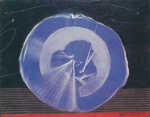Abstract
This article focuses on the way history-writers in the reign of King Henry II (King of England, Duke of Normandy and of Aquitaine, and Count of Anjou, d. 1189) quoted documents in their histories. Although scholars have often identified documentary quotation as the most distinctive feature of history-writing from this period, I argue here that the practice of quoting documents has not been properly assessed from a rhetorical perspective. Focusing on epistolary documents in the histories written by Roger of Howden, Ralph de Diceto and Stephen of Rouen, I suggest that scholarship on these texts has distinguished between 'document' and 'narrative' too sharply. My argument, rather, is that epistolary documents functioned as narrative intertexts; they were not simply truth claims deployed to authenticate a history-writer’s own narrative. The corollary to this is that scholarship on these texts needs to negotiate the potentially fictive nature of documentary intertexts, just as it has long negotiated the potentially fictive nature of the historiographical discourse that frames them.
Except where otherwise noted, the content of this site is licensed under a Creative Commons Attribution-ShareAlike 4.0 International (CC BY-SA 4.0).
Authors retain copyright of their work. The CC BY-SA 4.0 licence allows readers to copy and redistribute the material in any medium or format, and to remix, transform, and build upon the material for any purpose, even commercially, as long as the original author is credited and as long as any works that are derived from the original are distributed under the same terms.

